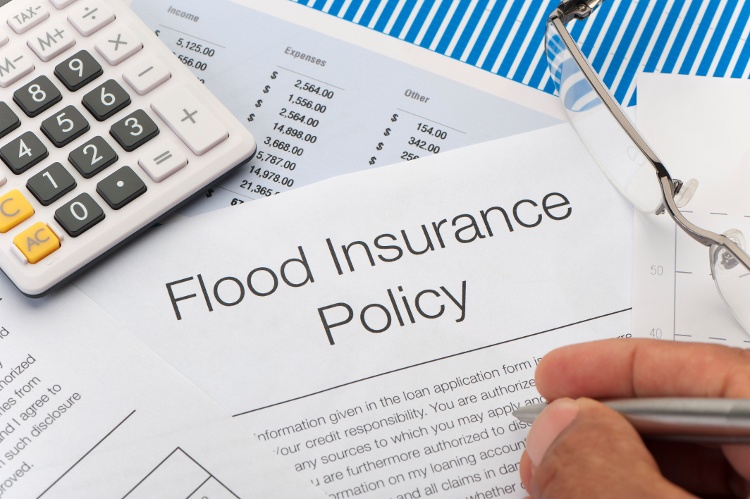There are different types of insurance and coverage options for real estate investors to help cover you against a partial or full loss, claims from a tenant, or even costs arising from a lawsuit. Having the wrong insurance for your rental property could result in you losing your business and personal funds, putting a sudden end to your real estate investing career.
With the right rental property insurance, you can reduce the risk of unexpected losses without paying for coverage that you may not need.
Types of Insurance Coverage for Rental Property
Here are 14 of the most common types of insurance policy and additional coverage options for real estate investors.
Although the list is long, there are other items you may want to consider as well, depending on where your investment property is located. That’s why it’s important to talk to a few different insurance brokers in your local market to have experience working with rental property investors:

1. Landlord insurance
Also known as rental property insurance, landlord insurance bundles together the different types of coverage that most real estate investors typically need. For example, a landlord insurance policy may include insurance for liability, hazard, and loss of income.
One thing that landlord insurance doesn’t cover is the items that belong to your renter. In many states, you can require a tenant to obtain and pay for their own renter's insurance policy.
2. Liability insurance
Liability insurance covers accidents that happen at your property involving people such as tenants, their guests, and even your repair people. Typical liability coverage may protect you:
- If someone gets hurt or something is stolen
- If there's an accident that occured on your property and there are hospital and rehabilitation bills
- If someone decides to file a lawsuit, including any damages awarded that you must pay
3. Hazard and fire insurance
Coverage for hazard and fire are typically covered in a basic insurance policy. Hazards may include things such as structural damage from storms, fire, or theft. When you review your hazard and fire insurance coverage for your rental property, many investors prefer to be insured for the replacement cost of the property and not just the current cash value.
4. Sewer and water line backup
Coverage for sewer and water line breaks or backups can usually be added to your insurance coverage. While most clogged lines can be easily cleared, a break in your main plumbing line can be an unexpected expense that you have to pay. In many municipalities, if a break occurs on your side of the property line, you, and not the city, could be responsible for the repair using a licensed contractor.

5. Flood insurance
Flood insurance is required if your property is in a designated flood zone, or if you are concerned about an unexpected catastrophe that could cause flooding that damages your rental property. While a basic insurance policy typically covers water damage from a broken pipe, many policies do not cover water damage from outside sources such as a hurricane or "100-year flood".
6. Tenant rent default insurance
Also known as rent guarantee insurance, companies such as Rent Rescue and Steady can protect you against a tenant defaulting or ‘skipping out’ on the rent. Rent default insurance helps to prevent interruption to your income by reimbursing you if the tenant doesn’t pay the rent.
7. Pet coverage
Offering a pet-friendly rental property can help you keep vacancy low and rents higher. However, if you do rent to a tenant with a pet, you may want to make sure the tenant has pet coverage in their renters insurance if your local landlord-tenant laws allow. That’s because you might be held liable for any damages or injuries caused by your tenant’s pet.
8. Loss of income coverage
Loss of income insurance protects you if your rental property becomes uninhabitable for an extended period of time, such as if it suffers damage from a fire or a natural disaster. If you only have one rental property and an affordable mortgage, you may be able to cover your expenses even if your property is vacant for several months. But as your rental property portfolio grows and your income depends on the rent received, loss of income insurance may make good business sense (depending on your personal situation).
9. Partnership insurance
As real estate investors scale up their businesses, they often invest in joint ventures or real estate partnerships. Partnership insurance allows you to have insurance on your other partners. That way, if a partner dies you can buy back the investment from the family of the partner and continue the business instead of working with an unknown new partner.
10. Builder’s risk insurance
If you’ve purchased a vacant property and are renovating it, consider whether to obtain builder’s risk insurance. This short-term insurance policy may cover you against vandalism, theft and property damage, and contractor injury claims that your hazard and fire insurance and liability policy may not cover. Some builder’s risk insurance policies may also cover you against loss of income if there is a significant delay in completing the project.
11. General contractor insurance
Active real estate investors who do their own renovation work instead of hiring a contractor may choose to obtain general contractor insurance. This type of insurance covers you if construction equipment is stolen or damaged, or if workers are injured while working on one of your rental properties.
12. Worker’s compensation coverage
Some real estate investors get to the point where they have so many rental properties they need to hire employees. Worker’s compensation insurance protects you against things like medical expenses for injured employees or being sued for causing an employee’s injury.
13. Umbrella insurance
Umbrella insurance is a type of secondary coverage that protects you once the limits on your standard liability policy have been exceeded. For example, if you’re involved in a lawsuit, legal defense costs and expenses related to an injured person’s medical expenses, therapy, and lost wages may be covered by an umbrella insurance policy.
Tips for Choosing the Right Insurance
Choosing the wrong insurance coverage for a rental property can be an expensive mistake in more ways than one. Selecting the wrong policy could mean you’re not covered when a natural disaster strikes, or hurt your cash flow by overpaying for extra coverage that you really don’t need.
Here are some important tips for choosing the right insurance and additional coverage for your rental property:
1. Be honest
Insurance for a rental property generally costs more than for an owner-occupied residence. Because of this, some investors try to cut corners and save a few dollars by not telling the insurance company the property is a rental.
This can result in a claim not being paid or the policy being canceled. Always keep in mind there are two ways insurance companies make money: collecting premiums and not paying claims.
2. Actual cash value vs. replacement cost
Actual cash value (ACV) means the insurance company will cover what you paid for the property, less the value of the land. Replacement cost is insurance coverage full cost of any loss, even if you have to rebuild the property.
If you own rental property in a market where prices are rapidly rising, be sure to run sales comparables each year before you renew your policy to make sure you’re fully covered.
3. Type of policy
Property insurance policies fall into three main categories: Landlord for rented property, Vacant for a property you are renovating, and Builder’s Risk for a house undergoing a major rehab. If you’ve just finished updating a property and are ready to rent, update your policy as well and ask your insurance broker about additional coverage for lost rent, tenant liability, and pets.
4. Deductibles matter
A deductible is the amount of money you will pay each time a claim is filed. Insurance companies have deductibles to make sure you have some ‘skin in the game’ and to help limit the number of claims a policyholder makes.
As a rule of thumb, the higher your insurance deductible is, the lower your annual premium will be, and vice versa. Make sure you have money in a reserve account to pay for your deductible when and if a claim is made.
5. Insurance agent vs. broker
Insurance companies work similarly to the way lenders do. An insurance broker can represent several insurance companies and may have ways to creatively insure a difficult property.
On the other hand, insurance agents represent only one carrier, such as State Farm or Liberty Mutual. When you choose an insurance agent or broker, make sure they have experience with rental property and the types of additional insurance coverage real estate investors need.
6. Claims can hurt
Many investors feel that if they’re paying the insurance premium, they should file claims to make sure they get their money’s worth. However, too many claims on a property - or by the same policyholder - can increase your annual insurance premium or cause the carrier not to renew your policy. If your property becomes difficult to insure, your options for insurance will be limited and your policy expenses high.
7. Get policy discounts
Everyone likes to get repeat business, and insurance carriers are no exception. When you shop around for rental property insurance, ask the company that insures your own house or car if they offer insurance for real estate investors. Oftentimes, insurance companies are more than willing to put together a discounted package deal for all of your business.

Final Thoughts
Having the right insurance for your real estate can help protect you against large, unexpected losses while keeping your cash flow healthy by not paying for coverage you don’t need.
It’s important to understand your existing policies and have a trusted insurance broker as part of your real estate team to understand if your insurance coverage needs to be upgraded. If you’re under-insured when a disaster strikes, it’s usually too late to make a change.









